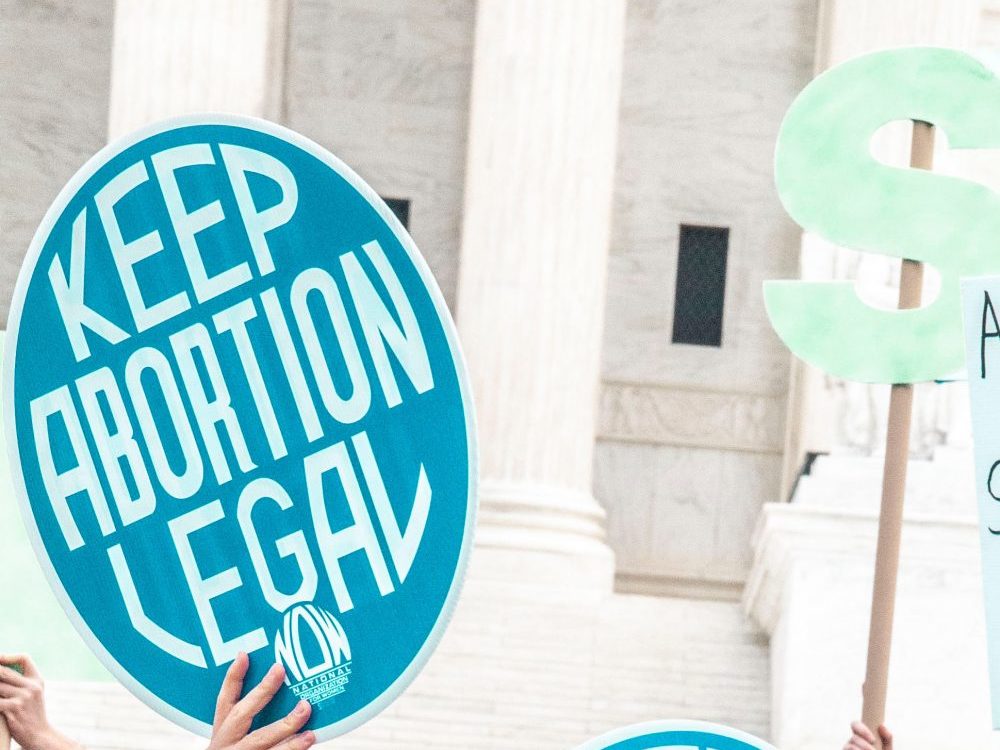The U.S. Supreme Court heard an abortion case this week that threatens to dismantle the 1973 decision that guaranteed American women the right to an abortion. While the case echoes one decided in favor of abortion rights in 2016, the court’s composition has drastically changed in the last four years.
Supreme Court justices heard oral arguments around a Louisiana law passed in 2014 that requires doctors performing abortions to have admitting privileges at a hospital within 30 miles of their clinic. These privileges allow a doctor to admit patients to a particular hospital, but many hospitals refuse to grant them to abortion providers for a number of reasons — including religious hospitals that refuse on moral grounds. If the requirement went into effect, clinics that don’t receive admitting privileges would no longer be allowed to offer abortion services in the state.
After the Supreme Court decided to hear the case, the legal team defending the Louisiana law argued that doctors and clinics don’t even have the legal standing to file lawsuits on behalf of patients. Abortion clinics have long represented their patients in court, and it remains unclear if the court will even address this question. But a reversal would be a huge win for abortion opponents.
“We should not have to refight legal battles that we’ve already won, but states like Louisiana are in open defiance of the Constitution and the Supreme Court’s rulings,” Nancy Northup, president and CEO of the Center for Reproductive Rights, said in a press release this week. “It’s alarming and unacceptable that in 2020, some states are still hell-bent on denying women access to reproductive healthcare. Once again, the Court must step in to block these clinic shutdown laws and ensure that the promise of Roe v. Wade is realized for all women.”
What’s at stake in Louisiana
In 2016, the Supreme Court struck down a very similar Texas law surrounding admitting privileges in Whole Woman’s Health v. Hellerstedt on the grounds that it constituted an “undue burden” on abortion access. The law had gone into effect before the appeals reached the nation’s highest court, and nearly half of Texas’ abortion clinics closed in its wake. The same thing would happen in Louisiana if this law is allowed to go into effect.
Abortion access in Louisiana is already dire. Since 2014, the state’s total number of abortion clinics has fallen from five to three. This law would force two of the remaining three clinics to close, leaving a state with a population of 4.7 million with a single doctor who can perform abortions.
What it means for the nation
Chief Justice John Roberts signaled during the oral arguments that he saw the 2016 ruling as final, CNBC reports. But on top of shuttering clinics in Louisiana, a decision to uphold the Louisiana law would embolden other anti-abortion lawmakers to pass similar restrictions. It would also effectively legitimize the underlying argument that abortion clinics need admitting privileges at hospitals because abortions are unsafe.
In reality, few abortions performed in clinics lead to hospitalization. And when emergencies do arise, hospitals don’t turn away patients. The American Medical Association and American College of Obstetricians and Gynecologists both say there’s no medical justificiation for requiring abortion providers to have hospital admitting privileges.
At the same time, a decision to prohibit abortion clinics from challenging restrictions on behalf of their patients would make it much harder to get harmful laws overturned in the future. Forcing patients to file lawsuits on their own opens them up to the financial burdens of going to court, as well as harassment. A 2020 study from Advancing New Standards in Reproductive Health (ANSIRH) found that 60 percent of people who have shared their abortion stories publicly experience harassment or other negative incidents as a result.
The court is expected to issue a ruling later this spring. And a legal precedent sending the message that abortions are dangerous would likely open the floodgates of anti-abortion legislation in states that have been battling to restrict access for years.









